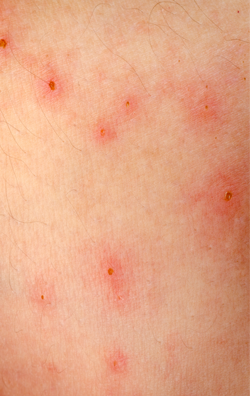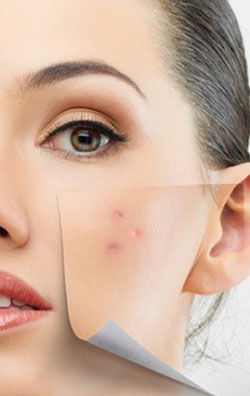
Migraine is an ill-health condition which causes episodes of headache. It starts off with signs and symptoms like blind spots, flashes of light, tingling in the arms and legs, nausea, vomiting and high sensitivity to sound and light which is followed by severe headache. This pain could last for hours and even days.
Migraine attacks at times become so prominent that all you can think about is getting rid of it somehow by finding a dark, quiet place to lie down.
The initial symptom of migraine commonly begins in childhood or as a young adult. The severity of pain varies from person to person. In some cases it may occur as frequent attacks, while in others the duration between the attacks may take even years. However, in some people it may persist throughout life.
During a migraine attack, the following symptoms would be experienced by a patient:
* Blurred vision
* Vomiting followed by fainting.
* Zigzag appearance of lines in front of the eye.
* Pain on either sides of your head.
* Development of sensitivity towards light, sound and at times to certain smell as well.
Causes:
There are various causes due to which migraine gets generated or triggers:
1. Hormonal fluctuation in women:
In some women, the hormone called estrogen drops down. Women who have a history of migraine are more susceptible to such conditions. They may develop the chances of getting migraine before or during their periods.
2. Food habits:
Skipping your meals and fasting can also lead to migraine. Intake of unhealthy and processed food may also lead to migraines and headaches.
3. Stress:
Stress and tension at workplace and household may lead to migraine and other such health issues.
4.Sensory stimuli: Bright lights, exposure to sunlight, loud noise or sounds, smell of perfumes etc. can also induce migraine in some people.
5.Physical factors and change in the environment:
Intense physical activity and exertion can also be a causative factor. Also some environmental conditions may also lead to migraine or severe headaches.
How to tackle migraine:
* Always keep a record of the occurrence of your headache. Note down and make a record as to when your headache starts and for how long it lasts. Any unusualness and uneasiness should also be noted. Also list down your response to any medications are taken.
* Manage and control stress: Try and practice stress-reduction methods and techniques like meditation for keeping tension and stress under control.
* Maintain a healthy sleeping habbit. Do not skip your sleep or be awake till late night.
* Consult a doctor: Consult a doctor if the situatuion worsens or become more prominent. Thorough investigation by the doctor can help you identify the exact cause of your problem.
Treatments and Drugs:
There are some medications and treatments available to combat migraine:
1. Pain relievers: drugs that are consumed to stop the symptoms that have already begun. There are some preventive medications that are taken on a daily basis which reduces the severity and frequency of the pain.
2. Antidepressants: Some times, doctors may prescribe antidepresseants for the effective mangement of migraine .
3. Acupuncture: In this technique, a practitioner inserts many thin needles in different areas of your skin, which is used to help you overcome the pain caused due to migraine.
4. Massage therapy: Massage therapy is an effective method to help reduce the frequent occurrence of migraine.





